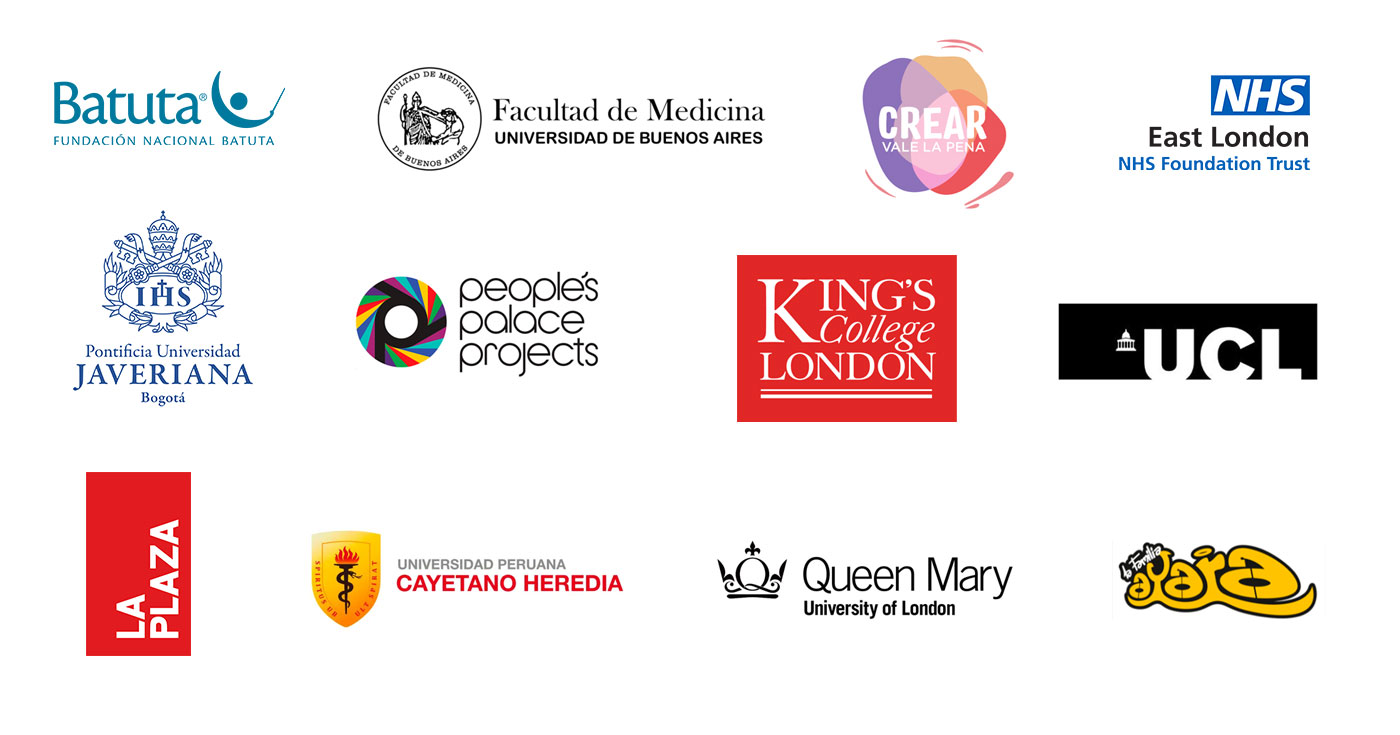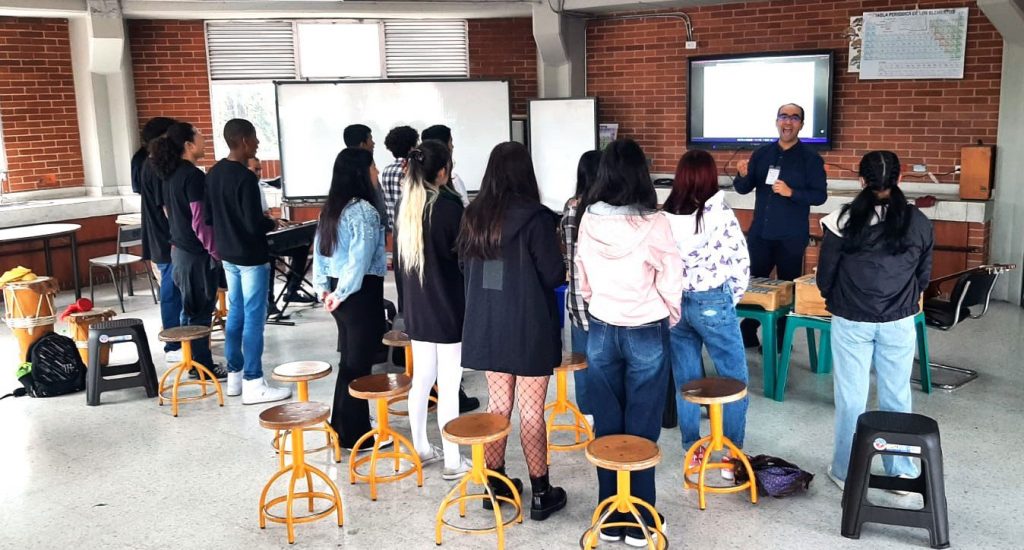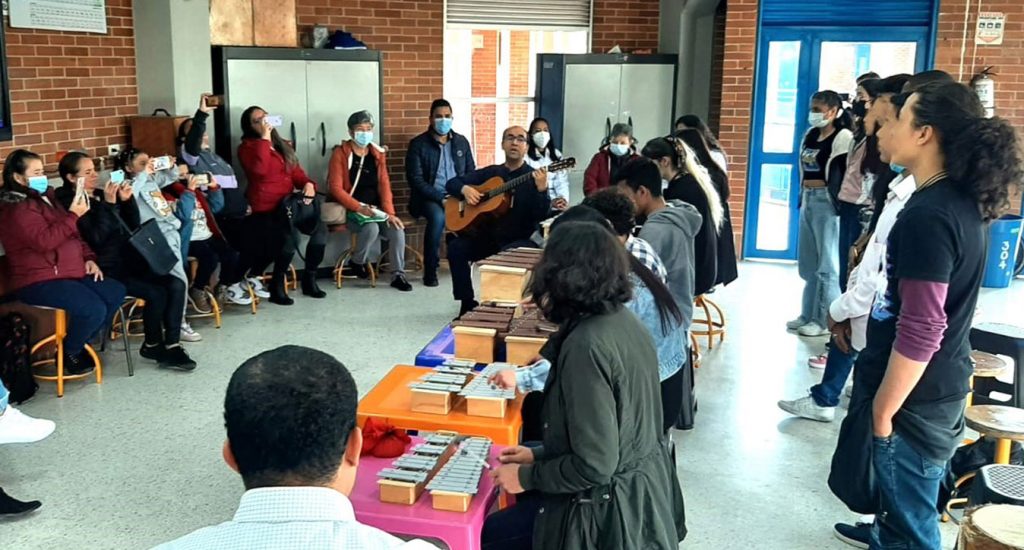Trial Within A Cohort Studies (TWICs)
TWICs
No, not the well-known chocolate bar (!) - but two additional studies to find out if arts-based workshops might reduce mental distress in young people in Buenos Aires, Bogotá and Lima.
Aims
The two additional studies have the following aims:
- We aim to assess the feasibility, effectiveness and experiences of a music workshop intervention for adolescents (15-16 years) in Bogotá (Colombia) with symptoms of anxiety and/or depression.
- We aim to assess the feasibility, effectiveness and experiences of a creative workshop intervention for young adults (20-24 years) in Buenos Aires (Argentina) and Lima (Peru) with symptoms of anxiety and/or depression.
Study design
A TWIC is a small study within a larger (cohort) study. The large cohort study recruits participants with the condition of interest and follows them up over a period of time. On OLA, the participants Some participants from this cohort study are then selected to take part in a smaller study: a randomised controlled trial (RCT), in order to test an intervention. Data is collected for the whole cohort over several time points, providing longitudinal information about the progression of the condition both for participants in the original (or control) group and those having the intervention.
Why are we doing this study?
Whilst there is evidence for the effectiveness of music therapy and art therapy groups, this study tests the helpful potential of music and creativity groups that have not been designed as therapy. As compared to formal therapies, they are supposed to be more appealing to adolescents, do not come with an implicit message that there is something wrong with the adolescents that requires professional help, are more flexible in their format, are lower cost and can be provided by a wider range of musical and artistic facilitators. They also have the advantage of teaching musical, dancing and performing skills which can build self-esteem and be beneficial in future life. Although not formal therapies, such activities may be assumed to reduce mental distress. There is a large body of evidence suggesting that arts activities can have a range of health benefits and even increase life expectancy.
Funded by

Partners


Copyright © 2021. All Rights Reserved
Financiado por

Socios






